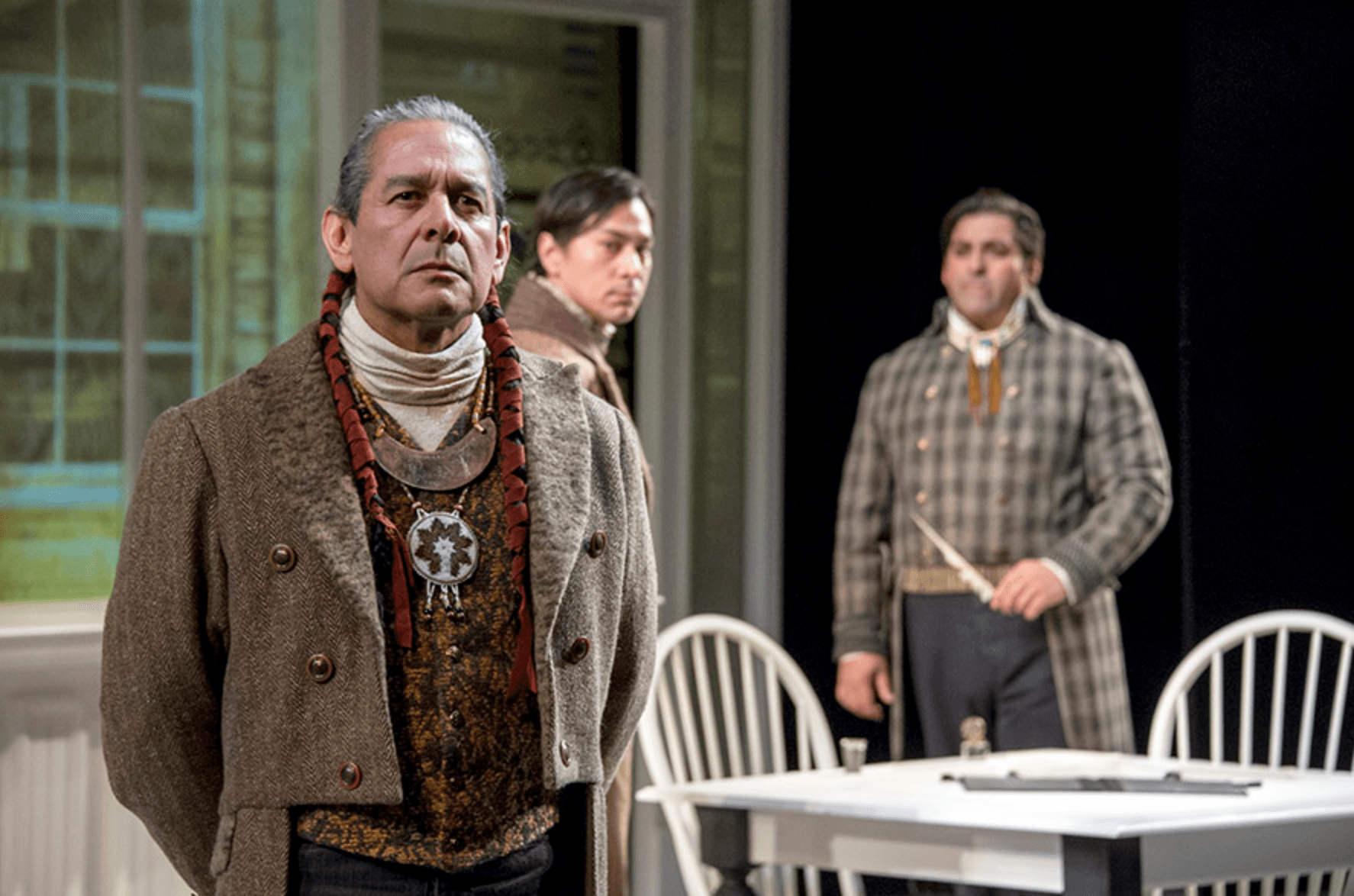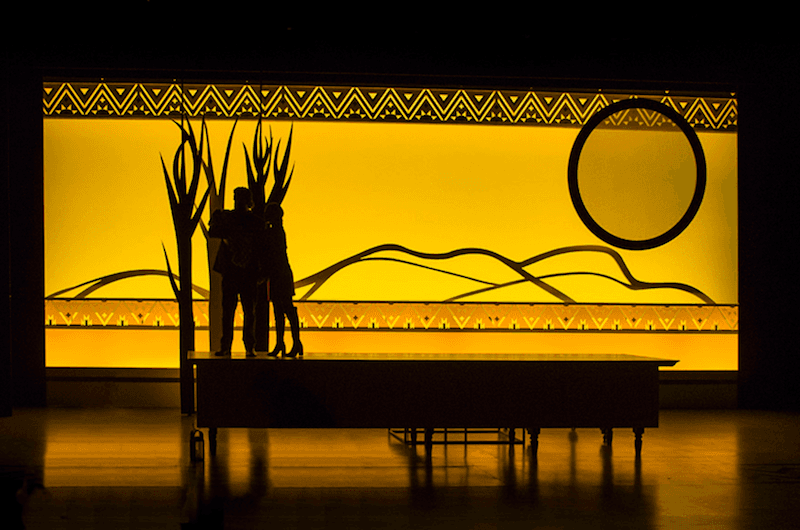Native playwright Mary Kathryn Nagle resurrects her past to tell a story in the present
This is the set for "Sovereignty" at Arena Stage at the Mead Center for American Theater in Washington, DC.
Cherokee playwright Mary Kathryn Nagle is fighting for the rights of Native Americans both onstage and off.
Her new play, "Sovereignty," at the Arena Stage in Washington, DC, weaves together her rich Cherokee heritage, tribal justice in the Cherokee Nation of Oklahoma and the larger fight to protect indigenous women. These are all areas that Nagle is well-versed in. She balances a full-time law career devoted to issues that also show up in her plays: tribal sovereignty, domestic violence, the environment and sexual assault. Nagle is the first Native American playwright to be featured at the Arena Stage.
Native playwrights across the country are having their moment in the theater right now, and Arena's director, Molly Smith, wasn't just checking off some diversity box when she chose "Sovereignty" as part of its Power Plays series. Over the next 10 years, Arena will commission and debut 25 new plays about US history — relating to each decade beginning in 1776.

"Sovereignty" begins in 2013 when the Cherokee Nation of Oklahoma was implementing the Violence Against Women Act. The act restored tribal criminal jurisdiction over non-Natives who commit crimes of domestic violence, dating violence or violate protection orders on tribal lands. The main character in "Sovereignty," Sarah Ridge Polson, is an attorney defending the tribe's right to prosecute a non-Native accused of sexual assault in the Cherokee Nation Supreme Court. And that's not coincidental: Nagle's great-great-great-grandfather, John Ridge, served as the speaker of the Cherokee Nation Tribal Council — the body that established the Cherokee Nation Supreme Court. He was the first Native American attorney but was barred from practicing law in the 1830s because of his race. John Ridge is also a character in the play, which goes back and forth in time.
"My grandmother at a very young age taught me that my grandfather was one of the first Native attorneys in the country, and that was something that was incredibly important to me and I've always wanted to work in the Supreme Court," says Nagle. Her dream came true. She's now a partner at Pipestem Law, a firm devoted to working on cases in Indian Country that preserve and protect the rights of tribal nations. One of their clients includes the National Indigenous Women's Resource Center, who filed an amicus brief in the Dollar General Corp. vs. the Mississippi Band of Choctaw Indians case in 2015, which affirmed that tribes do have jurisdiction when it comes to prosecuting non-Natives of crimes of sexual assault.
For Nagle, things are coming full circle.
"I'm getting to do this work and fight for the same the same thing that my grandfather fought for and that is the sovereignty of our tribal nations."

Nagle admits that, for a lot of non-Natives, the play involves a bit of a learning curve. That's because the only knowledge many non-Indians have about Cherokees is the Trail of Tears. And while that painful history of the Cherokees' removal from their homeland by President Andrew Jackson in the Southeast is a part of this play, the Treaty of New Echota and Nagle's connection to it takes center stage.
John Ridge was one of the treaty's signers. He did so because he thought if he gave up Cherokee homelands it would preserve the nation, Nagle says. Nagle acknowledges that legacy and says trauma like this takes several generations to heal.
If there is one thing Nagle wants to make clear with this play, it's that Native American history is American history. She points out that it was tribal nations signing a (separate) treaty with Washington that gave the United States standing in the first place. Basically, the United States is a nation because of tribes, she says. And that sovereignty is at the heart of this play, along with the very right for tribal nations to govern themselves in their own courts.
"Our tribal nations have an inherent right to protect our citizens just like the United States has an inherent right to protect its citizens when they are the victims of crimes on their own lands," Nagle says.
"And I hope that that non-Native Americans will also see us as human. I think it's no coincidence that this is the first Native play to be produced at Arena Stage, and most theaters in the United States have never produced a single play by [a] Native playwright. And so, [for] most Americans, their only encounter with Native Americans is the back of a football jersey. And that's not even a real Native American, right?"
Once "Sovereignty" ends at Arena, Nagle will be working on the play "Manahatta" for the Oregon Shakespeare Festival. It revolves around a young Delaware woman working in the banking and finance industry. Manhatten, of course, was once Delaware territory, and Nagle will once again be giving us a history lesson we should've gotten from the textbooks in school.
"Sovereignty" runs at the Arena Stage until Feb. 18.
